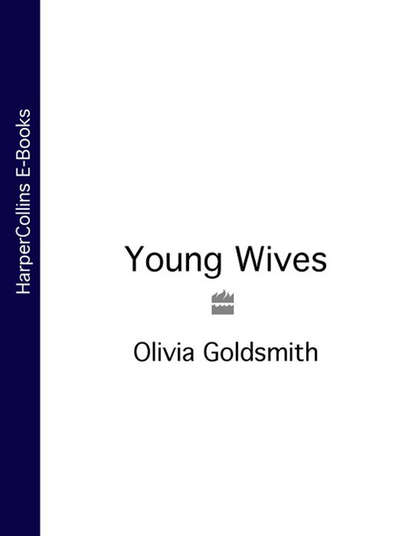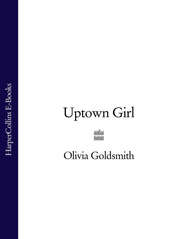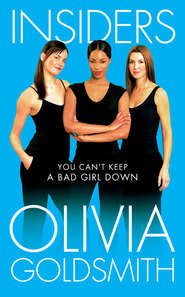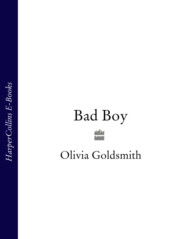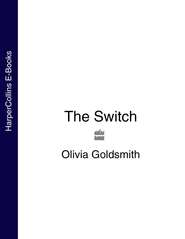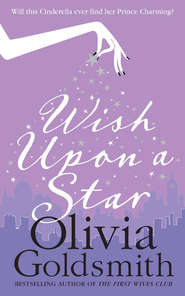По всем вопросам обращайтесь на: info@litportal.ru
(©) 2003-2025.
✖
Young Wives
Автор
Год написания книги
2018
Настройки чтения
Размер шрифта
Высота строк
Поля
Jada had turned back to the crowd when the car drove the children away. The other faces around her were anything but friendly. Neighbors from the block and even one street over had assembled. If the night was colder, Jada wondered whether they would have rushed out into it so quickly to share Michelle’s tragedy. Such alacrity, when with advance notice you couldn’t get them out for recycling.
But what the hell was going on? Jada overheard a few nasty murmurs and then some even more unpleasant rumors. “A kiddie porn ring,” Mr. Shriber said, and his wife, a pleasant plump woman whom Jada had always liked before, nodded her head knowingly. “There were always a lot of kids around,” she intoned.
“That was because their children were popular,” Jada snapped. “And because Michelle let the whole neighborhood play in her yard.” The Shribers were notorious for the perfection of their lawn and flowerbeds. No one was allowed on their property, ever. They had once put in a formal complaint about the mailman when he stepped off the walk. “You better watch out you don’t get sued for slander and lose your landscaping.”
Jada had then struggled through the rest of the crowd, wondering what the hell could be so wrong. What really had worried her was that there wasn’t an ambulance in sight. The irony that seeing an ambulance would be good news was not lost on Jada. At least there wasn’t a van from the morgue. She had stood there helpless a few more minutes. Finally, after she—and all the damned locals—had seen a handcuffed Michelle put into a police car and driven away, she had asked one of the black cops, one of only two she’d seen among the dozens there, what the hell was going on.
“Drug bust,” he had said. “Big dealer. We’ll get a couple of new cruisers out of this.” Jada’s mouth had fallen open.
It was still open. She sat at her desk, the memo that needed correction unmarked in front of her. She could barely take it in. A drug bust—a big one—on her safe street, and happening to her friends. Not that she believed Michelle was involved or guilty. Just that it could happen, that wealthy, working white people who owned their home could have their lives—and their furniture—wrecked and left on public display.
This morning, as she drove past the house, roped off with yellow crime scene tape, she’d seen two of Michelle’s dining chairs, the upholstery torn, the filling ripped out of them, sitting forlornly on the drifts of leaves in front of her house. All sorts of other household goods were strewn over and among the leaves: throw pillows, Frank’s footstool, the lamp filled with shells that Michelle loved and Jada had always thought was a little tacky.
Seeing Michelle’s things strewn like garbage in an abandoned lot had given her such a pang, such a sense of doom and the inevitability of death, that it was almost as bad as seeing corpses out there. Jada knew just how often Michelle polished the wood of those dining room chairs. She’d even been with her when she picked out the rose and ivy fabric they’d been reupholstered in, fabric that was now slashed and flapping like torn eyelids in half a dozen places.
Her elbow on the desk, Jada put her forehead against her hand and rested it there, closing her eyes for a moment. She could feel her long fingers pressed against her skull through the thin skin at the top of her head.
When she’d come home last night, Clinton had been standing in the front doorway holding the baby. He hadn’t asked her a single question. He’d only admonished her.
“You shouldn’t be out there,” he’d said as she walked up the steps.
“Why the hell not?” Jada had asked, thinking he was criticizing her for rubbernecking like the others. “I was trying to see if I could help. She’s my best friend.”
“You shouldn’t be out there because we don’t want to be attached to this thing.” She had walked inside and Clinton had closed the door behind her. “Frank Russo has always dealt from the bottom of the deck. How do you think he got those county contracts?” For years Clinton had been anti-Frank. Jada had never been able to figure out if it was because Frank was so successful and Clinton was jealous, or if there really was something to Clinton’s concerns.
Last night, Jada had snapped at him. “It’s not about a damn contracting dispute,” she told him bitterly. “It’s about drugs.”
“That motherfucker’s been dealing drugs?” Clinton had exploded. “Unbelievable.” The baby started, woke, and began to cry. Clinton began to pace and handed Sherrilee off to Jada. “I told you not to mess with them. Cops will be all over us, questioning us tomorrow. They see drugs, they see niggers. Jesus! How dare he? That greasy little fuck puts our whole family in jeopardy.”
“Not quite as much as he jeopardized his own family,” Jada had said coldly and had begun to stomp upstairs, soothing the baby but not knowing how to soothe herself. “If it was a black man, you wouldn’t think he was dealing. You would think he was framed,” she flung at Clinton from the stairs. “We don’t know what the story is.”
Of course, Michelle hadn’t come in to work and Jada had said nothing about last night to anyone. She’d made more than a dozen calls to police stations and to the courthouse. She’d also checked her answering machine twice to see if Michelle had, by any chance, called. But there was no message.
When Anne, Jada’s secretary, gave her little double knock on the door, Jada quickly lifted her head from her hands and picked up a pen. “Yes?” she asked and Anne came in, her eyes so big they seemed to precede her.
She carried a newspaper, not the New York Times or the Wall Street Journal, which Jada had learned to look through for business news every day, but the local county rag. “Look,” Anne said and flapped the newspaper onto Jada’s obsessively neat desk. Jada didn’t want to, but Anne was going to make her look at the scene of the crime. Trust jealous Anne to gloat at someone’s misery. Jada sighed. This woman needed a lot of churching.
She looked at the paper. There, spread out in two pages of tabloid pictures, was Michelle’s house, a close-up of Frank’s bloody, obviously beaten face, and—oh dear Lord—Michelle herself in her blue winter coat and handcuffs. Jada put her hand up to her mouth. SUSPECTED DRUG KINGPIN BUSTED, the headline read. She could hardly believe it.
“Isn’t that something?” Anne asked. There was something in the sound of her voice that gave Jada the feeling Anne was enjoying the excitement of this.
Jada grabbed the newspaper and crumpled it. “That headline is outrageous. Why don’t they just write ‘guilty’? This man has only been accused, not convicted,” she reminded Anne. “The press has already gone too far.” She looked up at Anne as she flung the newspaper into the garbage. “When Michelle comes back to work, I hope you will all remember that she hasn’t even been accused of anything. Now, don’t you have something better to do?”
After Anne left, Jada walked out onto the floor, spoke to a few of her staff as naturally as possible, and greeted an important customer. She returned to her office, trying to look casual, closed the door, and retrieved the newspaper from the trash. Smoothing it out as best she could, she gobbled up the dearth of information. Despite the bad underwriting, it didn’t seem as if any drugs had been discovered, thank God, and it did seem as if the police had been incredibly harsh both to Frank’s face and to the house. Jada knew that since the RICO Act had been passed, police had been gung-ho about busting for profit. She also knew that success bred resentment, and Frank, cocky as he was, probably had a lot of envious enemies in the county.
The intercom rang. “It’s Michelle,” Anne announced in a breathless voice, as if Al Capone were back from the dead and calling bankers. Jada picked up the phone, watching to make sure that Anne hung up.
“Have you heard?” Michelle’s voice asked.
Jada wondered if Anne, not visible now, was still listening on some other extension. “Honey, everybody’s heard,” Jada said. “Where are you?”
“I’m at home,” Michelle managed and then she gasped, making an awful sound that Jada didn’t like to hear and hoped that Anne wasn’t hearing. She lifted the phone base off her desk and pulled it as far as she could. Then, setting it on the floor next to the credenza, she stretched the handset as far as she could and just managed to get to the door and look out. Anne and several of the other women had their heads turned toward her but immediately telescoped around, avoiding her. None of them was on the phone.
“Oh God, Jada this is terrible. This place … it’s …” Michelle began to cry. “I have to go. I have to go pick up the kids. They were fostered out last night. Can you imagine?” She started to choke up; Jada could barely understand what she was saying. Something about Frank and making a list and the mirror and something else.
“Be cool, Michelle,” Jada said. “All the shit you’re looking at, all the broken stuff, isn’t important. The babies are important and they’re all right. You can come to my house tonight. We can clean up your place tomorrow.” The poor girl. Kneeling there in the wreckage, she probably did look like Cinderella but it wasn’t the time for Jada to make a “Cindy” joke.
“Oh, Jada.” Michelle made another horrible noise and then said something else about Frank.
“Is he home?” Jada said. She didn’t want to be too inquisitive. She’d known a lot of people who’d been in trouble and now wasn’t the time for twenty questions. “Is he there with you?” she asked.
“No,” Michelle answered, sobbing. “They wouldn’t let me talk to him, but a lawyer came and said he would be home tonight or tomorrow. Jada,” Michelle whispered, “it’s a nightmare. Frank didn’t do anything. How could the police do this to us?” She lost it then, and tears rose in Jada’s own eyes.
“Michelle? Michelle? You cry, but then wash your face and fix your hair and pull yourself together for Jenna and Frankie. You want me to come with you to pick them up? I know how Child Welfare can be.”
“I can do it,” Michelle whispered, pulling herself together. “I can do it,” she repeated, as if she were giving herself a pep talk, which Jada figured she was doing.
Jada used an old joke they’d run through together during the trials of raising suburban kids. “Are you calm?” she asked.
“Yes.”
“If you’re calm, I’m the Dalai Lama,” Jada said.
“If you’re the Dalai Lama, I’m Richard Gere,” Michelle answered weakly.
“If you’re Richard Gere, I’m outta here,” Jada finished. “I’ll leave work real soon, pick up some pizzas, and we’ll have a pizza party at my house. If you want to sleep over with the kids, that’s just fine.”
“Sleep?” Michelle asked. “Oh God, Jada. I’m never going to be able to sleep again.”
“Just as well,” Jada said. “It’s overrated. A big time-waster, generally. And you got a lot of cleaning to do. You okay?” she asked, just to be sure.
“Under the circumstances, yeah,” Michelle said. “Under the circumstances. And Jada?”
“Yes,” Jada said.
“Thank you. I won’t forget this.”
“I hope you do. I hope you forget the whole thing once it all gets straightened out. Meanwhile, tell me what’s really important. I forget if the kids eat sausage on their pizza or not.”
10 (#ulink_7d769079-feac-5058-91eb-b4cdd0e119b8)
During which Angela sleeps through a riot and is subsequently read the riot act twice
“You’re going to have to do something, Angela,” Tony, her father, was saying from the doorway of the study. “It’s not healthy to just lie here. You don’t even look healthy.” He craned his neck forward. “You’re not taking an interest in anything. You didn’t even get up last night during that riot.”
“What riot?” Angie asked dully.
“You didn’t even hear the cop cars and the commotion down at the end of the street?” Angela just shook her head. She’d found the number of a pharmacy that delivered, and a combination of Nyquil and Tylenol PM had put her in something close to a coma. “Well, you saw the police tape around the house today, didn’t you?” her father was asking. “The bastids wrecked the joint.”





